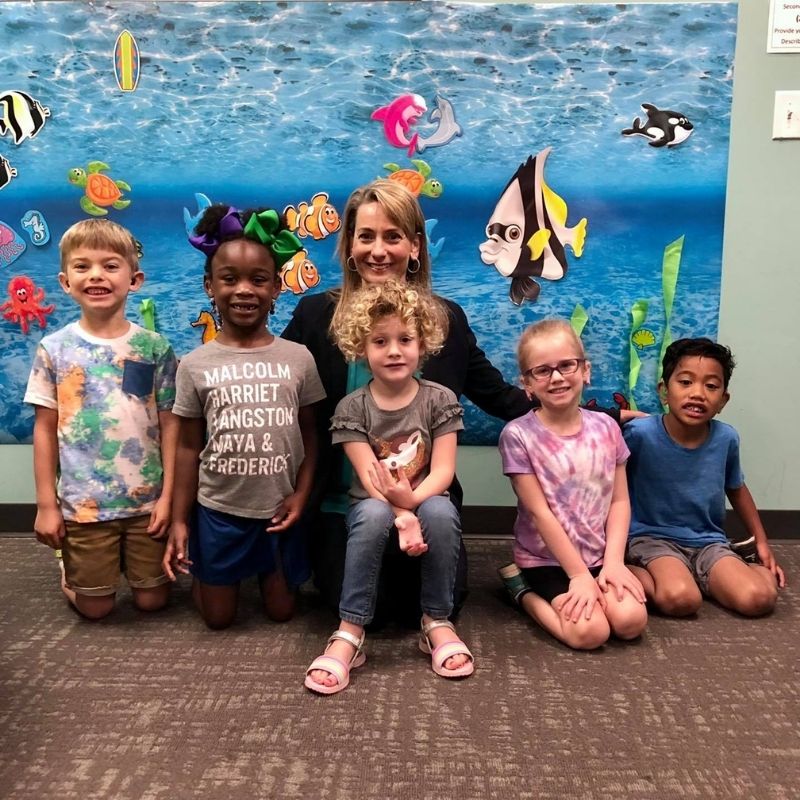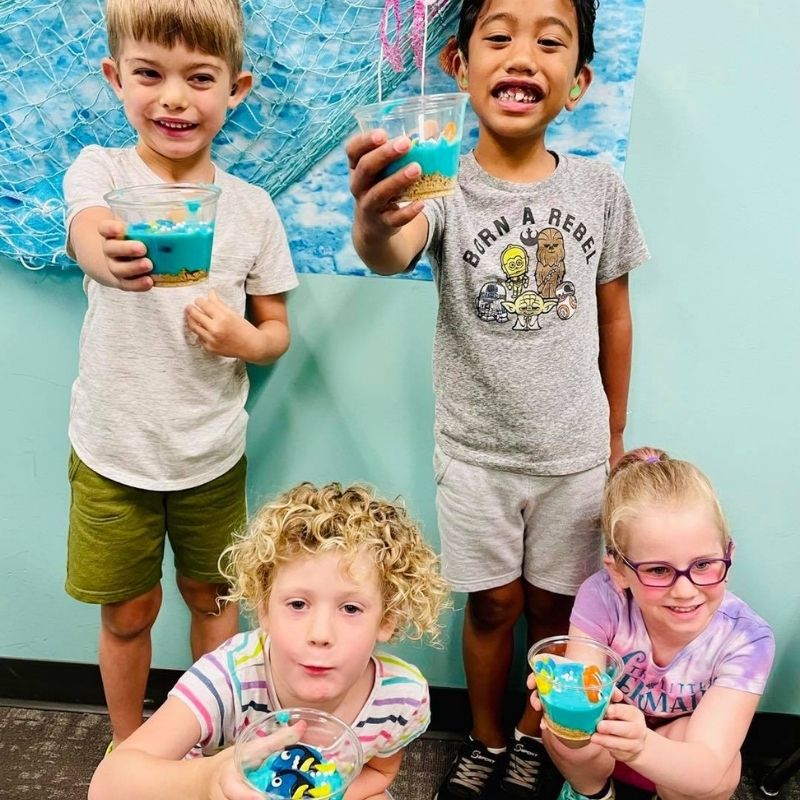WISE Preschool Offers Half-Day Program for Deaf & Hearing-Impaired Children in Huntsville
- Now open for Fall registration
- Ages 3-6 (Pre-K)

The Woolley Institute for Spoken-Language Education (WISE) is expanding into the Tennessee Valley. Families with deaf or hard of hearing children who are on the path to listening and speaking will now have additional resources close to home. WISE director Nancy Gregg says expanding into Huntsville has been a long-time dream for many in the community. Obtaining resources in years past has often involved Huntsville-area families driving to Birmingham. My own child is deaf with cochlear implants, but we were lucky to have secured the services of Ginger L. Mason, the one Auditory-Verbal Therapist in Huntsville at the time. The new resource I am most excited about, and one I wish my family had when my son was younger, is the WISE Preschool.
School Address: Summit Crossing Community Church, 7200 Governors West, Huntsville
Age of Students: 3-6; Students must be potty trained
Covid-19 Protocols: Follows CDC guidelines
Religious Affiliation: None
Teacher/Student ratio: 1:5
View Website | Facebook Page | Instagram
Teacher Credentials: The program is staffed by Certified Speech-Language Pathologists who are also Certified Listening and Spoken Language Specialists. They have over 80 years combined experience working with children with hearing loss and their families. Certified Speech-Language Pathologists provide classroom support in the WISE Toddler group and Preschool classrooms. They also provide individual speech therapy sessions for children with typical hearing. Trained paraprofessionals provide classroom support and assist in preparing therapy materials. Two Certified Speech-Language Pathologists volunteer in our program on a weekly basis.

How is WISE Preschool Different?
The preschool provides the core education of a typical preschool but provides additional services that cater to deaf and hard of hearing children. Students will engage in whole-group and small-group activities and also receive individualized instruction from speech and language therapists who are certified in spoken-language methods like Auditory-Verbal Therapy. The play-based activities the children receive equip them with well-developed listening and language skills. These are two main skills that can prevent these children from falling into a learning gap when they enter elementary school with typically-hearing peers. The ultimate goal is for these students to be able to fully participate in a hearing society.
WISE kicked things off in Huntsville this summer with a camp, and their main preschool program will begin this Fall at Summit Crossing Community Church. It is a half-day program ending at lunch time, but they plan to extend the hours in the next year or so after they secure a permanent location with a playground.
Describe a a typical day looks like at a WISE Preschool.
Nancy Gregg: “The preschool day at WISE begins with greeting friends, having technology checked to ensure that all is working optimally and gives best auditory access to each student. The children enjoy an interactive book through listening first before they see pictures, break into small groups for targeted speech and language activities that may involve a craft, special snack, engaging game or additional stories. These activities increase each child’s capacity to learn to trust and understand what they hear as they close the gaps created by access that was not available before they were identified and amplified optimally via hearing aids, BAHA or Cochlear Implants. They share snacks and short sessions of interactive play with one another while their teachers collect spontaneous speech samples that drive targets for structured tasks. At the end of the morning, they come together as a whole group for one of their favorite tasks, singing interactive nursery rhymes and children’s songs before they pack up and dismiss for the day.”
“Each language activity is targeted to be language rich. For example, when we read a book aloud, we do not only read the text, but we also fully describe the setting and characters, ask detailed questions about what the character’s actions or words might mean, define vocabulary and wonder about the solution to the problem that the author created. We like to teach children to retell parts of the story, predict how it might end, describe how the character feels and even imagine a different ending to the story. These strategies enrich the way the child views literature and builds listening, language, working memory and pre-literacy skills before they learn to read their first words. It is part of the daily routine to learn to listen and follow increasingly complex auditory directions. Those might be something like, ‘Color the last turtle in the first line blue’ or ‘Find a girl doll with purple pants and white shoes and put her between two boy dolls with black hair.’”
Who Can Apply to the WISE Preschool?
Children who are deaf and hard of hearing who are learning to listen and speak using technology and spoken-language therapy can apply. Students must also be potty trained.
For my son, the weekly speech and language therapy sessions and the activities we provided at home helped grow his language and sometimes above his typically-hearing peers. I remember other parents being surprised that my son knew so many words and concepts at a young age. He also could attend to activities longer than many of his classmates. Children with typical hearing pick up a lot of new words, as well as the conventions of language, just by overhearing conversations around them, and they do this from birth. Most parents don’t have to intentionally provide lessons and activities for their children to develop language skills. Deaf and hard of hearing children require intentional instruction and activities to build their language. These intentional, language-rich activities can increase a typically-hearing child’s language abilities as well.
How to Apply
Families begin by completing an Enrollment Packet.
Parents will need to include a current audiogram, an IEP if they have one, proof of immunization, details of medical background, documentation of known allergies and a release of information. Each child will receive a speech/language evaluation prior to enrollment.

I know from experience that raising a deaf child can be overwhelming. There was the initial shock of my son’s diagnosis. Then there was the quick learning we had to do in order to understand his hearing loss, discover the resources that were available (and where), and make important decisions. We then had to be active participants in helping him build language and helping him learn to listen and speak. We are still active, but at nine years old, he doesn’t need us as much. I am so glad that WISE is now in the area to provide their preschool, therapy resources, and support to families like ours.
Details
Where: Summit Crossing Community Church, 7200 Governors West, Huntsville, AL 35806 (map)
Who: Ages 3-6 (Pre-K)
Want to learn more?
Call or Email: Nancy Gregg, [email protected], 205-901-5506
Susan Bunyard, [email protected] 256-653-9907
You Might Also Like…
Heather Morgan is from Enterprise, Alabama, but she traded the allergies of the coastal plain for the allergies of the Tennessee Valley. She is a former outdoor environmental educator who enjoys walking in the woods, splashing in creeks, and searching for insects, snakes, and other critters. When at home, she spends more time outside than in, especially in her pool or on her back porch where she can keep an eye on her bird feeders and her gardening fails. She and her husband moved to the Madison area 18 years ago after meeting at the University of Alabama. They, along with their 9-year-old son Luke and 13-year-old German Shepherd mix Anni, moved into Madison City proper in 2020. What Heather likes most about the area is the overall kid friendliness, the schools, and the abundance of natural and other green spaces. When she’s inside, she can be found cooking, reading nonfiction, daydreaming about international travel, and watching broody, British detective shows. She is a stay-at-home mom and Co-founder of I Vote Madison, a non-partisan voter engagement organization.






